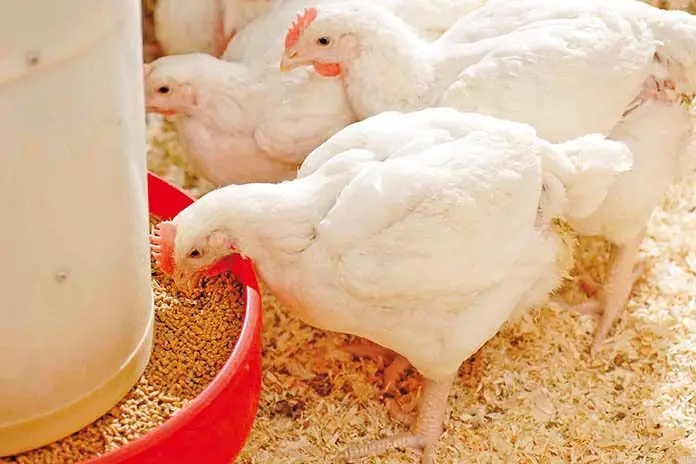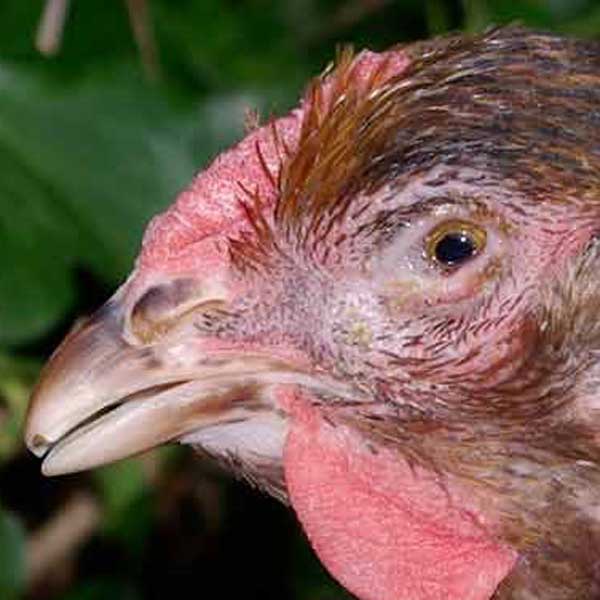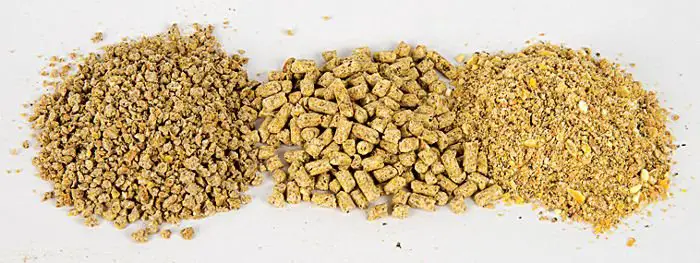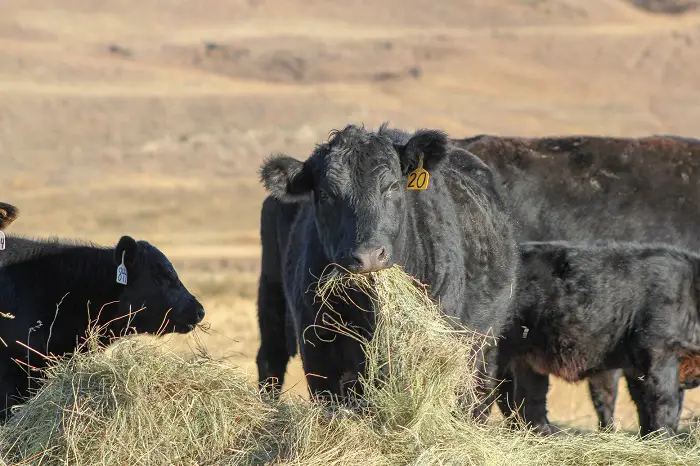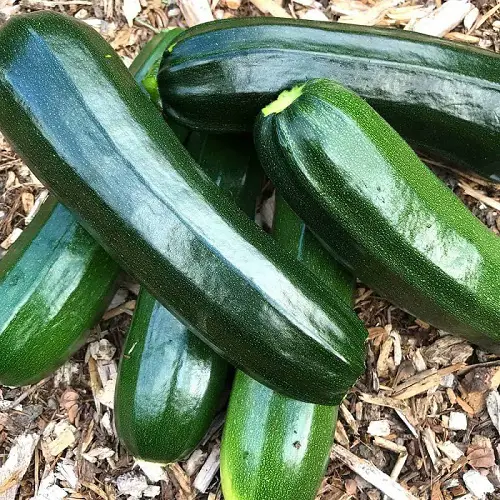Broilers are a type of chicken meat raised primarily for their ability to convert feed quickly into meat. These birds through years of breeding and selection, are now able to reach slaughter weights in four weeks. It is of outmost importance that the feed fed to these birds be able to supply all required nutrients to achieve the high genetic potential of these birds. Key attributes for the feed are that it should provide all the energy, protein and vitamins in the easiest presentation for the chicken to consume the feed easily at every stage of its growth. Because feed accounts for over 70% of the production cost of the broiler chicken, proper attention needs to be paid to this component of the production cycle.
Contents
Digestion in the broiler chicken
As the saying goes “as rare as a hen’s teeth” chickens are monogatsrics meaning animals with a single simple stomach however where they differ with other monogatsrics is the absence of teeth to chew the feed for easy digestion in the stomach and rest of the gut. For this purpose, chickens have a gizzard which is an organ which they use to grind feed into smaller particles. In nature chickens pick up little pieces of grit to help in this grinding process, however in the broiler this is not possible as they are raise in total confinement. Because of this intensification in the raising of the broiler chickens, they entirely dependent on the diet they are given to meet all their requirements for growth and immunity. This has a huge bearing on how the feed is formulated and produced before feeding to the birds, however feed taste has very little impact as the chicken tongue is very small and undeveloped
Broiler Feeding Behavior
The most important characteristic of the broiler feed is detected by the fact that chickens are grain feeders. This affects how they select the feed particles during feeding and the less selection the better. Modern diets now go around this by providing the feed in pellet form, with all ingredients compacted in one little mouthful so as to say.
Broiler Sex Variation
Most broilers sold on the market are normally mixed with both males and females present “as hatched” in every box sold. However, there are differences in terms of feed consumption and growth among the sexes, with males consuming more, typically growing about 15% more than females hence the need for more broiler feed and nutrients. Where performance and markets dictate farmers can raise males on their own and feed a specially designed feed with a high nutrient content especially amino acids the building blocks of protein.
The influence of nutrition on broiler chicken growth
As mentioned before the broiler depends solely on the diet that it’s offered for its growth performance, broiler feed can be manipulated to produce the anticipated quality of meat. For example, higher energy diets tend to lead to fatter broiler meat while high protein produces leaner birds with more muscle. A delicate balance needs to be struck which ensures that broilers are feed as economically as possible without over or undersupplying any nutrients.
Energy
The most expensive component of the broiler feed is the energy which comprises of about 60% of the total cost of the feed. Energy is basically the fuel needed by the bird to sustain all its biological processes unfortunately chickens cannot get their energy from the sun like plants. The diet has to supply all the energy required by the bird and the primary source is carbohydrates from corn/maize but fats and oils can also be a source of energy.
Protein
Protein is the building block for meat in the animal, protein itself is made up of different amino acids and is the second most important component for growth in the broiler chicken. Amino acids are broadly divided into two classes essential and non-essential amino acids. Essential amino acids are those that the chicken cannot produce on its own in its bodies production cycles and hence have to provide in the feed. An ideal mix of amino acids needs to be calculated in the feed to avoid over or undersupply of any amino acids a concept called the ideal protein concept.
Vitamins and minerals
Vitamins are required for good health of the broiler chicken and are usually supplied to the broiler feed through specially formulated and designed vitamin packs. Along with vitamins minerals are also required to normal bodily functions like transmit of energy and nerve signals and in building of bones and other skeletal structures. Key minerals in broiler feed are calcium and phosphorus and as before balance is key for both as the availability of one is affected by the other
Broiler Feed intake
The quality of feed has direct bearing on the feed intake that is the balance between protein and energy, vitamins and amino acids. An oversupply of one component can lead to low feed consumption and the vice versa. Another factor that affects feed intake is feed presentation and the broiler feed can either be mash or pellets. Mash is just ground up raw materials that have been mixed in the right proportions that produce a balanced diet. Pelleted broiler feed is mash feed that has been pressed through a pellet mill, a machine that presses the feed through a die with smalls sometimes steam is added to improve the binding of the raw materials into small pellets
Phase Feeding programs
In order to refine further the supply of relevant nutrients at the right time to benefit from the genetic potential of the broiler feeding phases have been devised from 2 to 5 phases. If we fed on one type of broiler chicken feed from start to finish at particular points in the growth of the broiler there would be period where the diet under, over or adequately supplies the required nutrients. So nutritionists have developed feeds with varying levels of nutrients to feed different stages of growth therefor producing meat in the most efficient manner possible
Importance of water for Broilers
An almost neglected part of feeding broilers is water which is the most important nutrient without it the birds would soon die.
